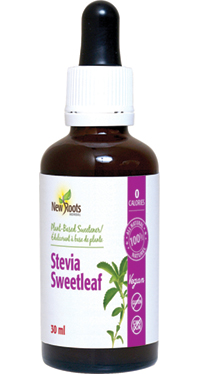A liquid sweetener in a convenient small container that fits in any purse, stevia is safe for diabetics. Used as a sugar replacement, stevia reduces high blood sugar levels, does not promote tooth decay, and it has no calories. It is ideal for coffe, tea, baking, and cooking.
Finally, a sweetener that is not a sugar at all, so you no longer have to feel guilty about using it. Stevia is even completely safe for diabetics. Research suggests that, unlike sugar, stevia causes no problems in diabetics or hypoglycemics. And it gets even better: it is actually used for high blood-sugar levels. Best of all, it does not promote tooth decay, but prevents it, and it has no calories.
This truly remarkable herb has been used in South America as a sweetener for hundreds of years. Its incredible properties have made it highly sought-after around the world. Stevia grows throughout Latin America as well as parts of the United States. In Japan, it is expected to be the main sweetener of the future and is now added to everything, from soy sauce to beverages.
Aspartame consists of phenylalanine, aspartic acid, and methanol. Methanol is a highly toxic poison at high levels; it is converted to formaldehyde and formic acid. These substances are highly toxic for the thymus gland. Aspartame is highly toxic for people who suffer from phenylketonuria. This inherited disease causes amino acids to accumulate in toxic amounts in the body, and the phenylalanine in aspartame can be very dangerous for them.
Not enough is known about aspartame to consider it a safe substance. However, what is known is that, according to research done by Arizona State University’s Biochemical Department, aspartame has been associated with seizures. There are also constant complaints to the FDA about recurrent headaches, dizziness, nausea, malaise, and visual disturbances.

 Stores
Stores
